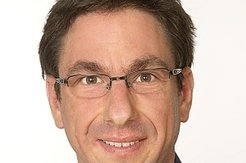ERC Consolidator Grant for Sönke Zaehle

Geoecologist Sönke Zaehle was recently granted a prestigious Consolidator Grant from the European Research Council (ERC) to deepen his research on the coupled terrestrial carbon, nitrogen and phosphorus cycles and their feedbacks to the climate system. Starting from September 2015, this grant will provide a significant push for his Terrestrial Biosphere Modelling group within the Department Biogeochemical Integration.
The main objective of the planned QUINCY project (“Quantifying the effects of interacting nutrient cycles on terrestrial biosphere dynamics and their climate feedbacks”) is to synthesize understanding on the interactions of nutrient availability and plant/microbial processes from experimental studies into large-scale models of terrestrial biosphere dynamics. Particular emphasis will be given to understanding (i) plant strategies to cope with nutrient stress, (ii) the role of the interactions between plant and soil organisms in nutrient cycling, and (iii) the integration of available and novel experimental evidence into large-scale biosphere models. The program is expected to run for five years.
Sönke Zaehle studied geoecology and environmental sciences at the Technische Universität Braunschweig, Germany, and the University of East Anglia, Norwich, UK. He received a PhD from the University of Potsdam/Potsdam Institute for Climate Impact Research, Germany, in the field of terrestrial biosphere modelling and uncertainty analyses. After having spent three years in France at the Laboratoire des Sciences du Climat et de l’Environnement, where he studied the interactions of the global carbon and nitrogen cycle as a Marie-Curie Fellow, Sönke Zaehle joined our institute six years ago to continue his highly successful research.
The European Research Council supports individual researchers with a unique research proposal at one European research institution in all disciplines of science based on the sole criteria of excellence. ERC grants provide researchers the opportunity to lead their own, independent research group and further establish their research portfolio.












